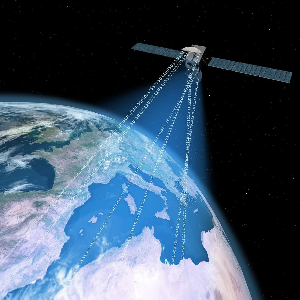Samara University took another step towards implementation of the program “learning through research”.
Kai Borre, academic advisor of the University Navigation Receivers Laboratory upgraded programs codes for the new version of Matlab software to make navigation receivers using SDR (software-defined radio) technology.
This enables users (University students) not only to process signals from the satellite, but also make their own satellite navigation receivers. Moreover, a user is able to improve the receiver at own discretion, creating a new product with given properties.
“File set is a mathematical model with a basic signal processing algorithm for GPS-receiver. You just need to download them and run in an updated version of Matlab and any personal computer will become a navigation receiver. Students can use this program code and develop based on its base their own algorithm to process navigation signals of modern satellite positioning systems”, - explained Ilya Kudryavtsev, Director of Samara University Institute of Electronics and Instrument Engineering.
In addition, nowadays the University students are able to improve the skills of navigation equipment development during the learning process with the help of new software modules. They also can perfect the satellite navigation technology and algorithms, evaluate and improve the positioning accuracy, as well as conduct researches in the field of signal processing.
According to Kai Borre, the previous files version for navigation receivers is outmoded and no longer corresponds to the updated versions of Matlab software.
The Danish scientist (now Samara University fellow) upgraded the software and developed affordable “learning code” to make a software navigation receiver.
“Some users will appreciate the increased use of cells and structures in the programs code. In return I would like to note that the code is designed primarily for beginners I'm sure that excessive pursuit of higher efficiency will only complicate the learning process,” – explained he scientist.
These files can be used with the new evaluation board for navigation receivers. It is like a hardware module for primary processing of satellite signals received by the active antenna output. With the use of such board a computer becomes an experimental platform for development of navigation receivers and can provide almost real-time positioning.
Those who do not have such a board can get a recorded dataset for an experiment. All you have to do is just to apply to Samara University Navigation Receivers Laboratory. The upgraded files for the new version of programming language Matlab are still the key elements in the scheme.
We can process signals of GPS satellites, GLONASS and Galileo in the single-frequency performance thanks to new available software modules. Strengthening the reputation of Samara University in the international scientific community is also one of distinct advantages of the research work made by Kai Borre.
The updated files are available for download not only for students and university researchers, but also for the users from around the world. However, their authorship belongs to Samara University.
For reference
Navigation Receivers Research Laboratory (NRRL-98) was established in Samara State Aerospace University in 2014. It is a part of the University Institute of Electronics and Instrumentation Engineering. NRRL-98 develops software-defined receivers for modern satellite navigation systems (American GPS, Russian GLONASS, European Galileo and Chinese BeiDou).
Kai Borre, professor of Aalborg University (Denmark), the author of several popular books on satellite navigation, was invited as a scientific advisor of the Laboratory. He also reads English-language Master's program “Navigation receivers. Hardware and software” in Samara University, which is focused on the study of characteristics of global satellite navigation systems - GNSS.
 RU
RU  EN
EN  CN
CN  ES
ES 